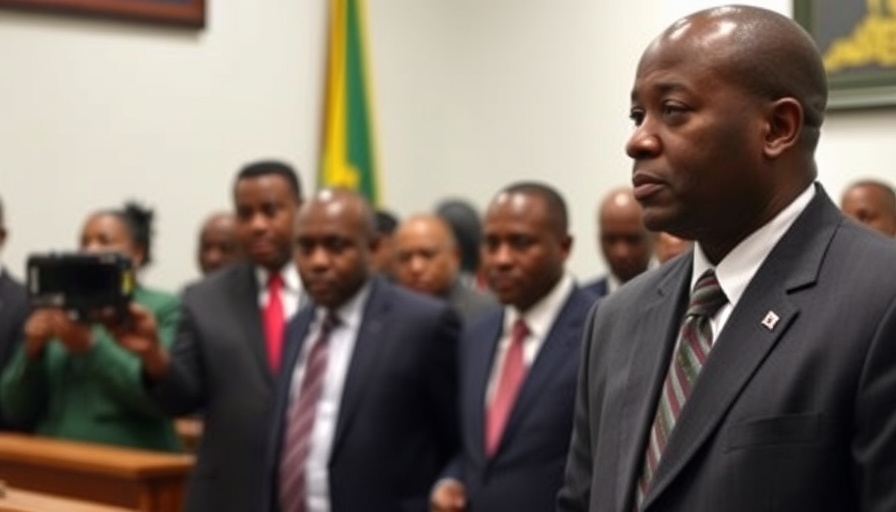
The Ban that Shakes Political Transparency in Tanzania
The recent decision by a Tanzanian court to prohibit live coverage of opposition leader Tundu Lissu's treason trial raises significant concerns regarding political transparency and freedom of the press in the region. As Tanzania navigates its political landscape, the implications of such a ban reverberate not only through national boundaries but also across the African continent, affecting how governance and judicial matters are perceived internationally.
Understanding the Political Landscape
Lissu, a prominent critic of President Samia Suluhu Hassan, faces charges that have been viewed by many as politically motivated. The court's ruling comes at a time when Tanzania is attempting to repair its global image following years of repression under former President John Magufuli's administration. The prohibition on live media coverage has sparked fears among civil society groups, apprehensive that it could lead to a lack of accountability in the judiciary. Political analysts urge that without scrutiny, this could hinder Tanzania's progress in establishing a legitimate and transparent political dialogue.
Impact on Governance and Global Relations
This incident further complicates Tanzania's relations with Western countries and international investors, who closely monitor governance and human rights practices. According to experts, policies that limit media freedom threaten economic investment and diplomatic relations essential for fostering an innovative and competitive African economy. Global markets have shown a growing preference for stability and transparency, understanding that countries prioritizing these values are more likely to attract investment and trade opportunities.
The Ripple Effect on African Politics
The implications of this ruling extend beyond Tanzania's borders, as it reflects broader patterns in African governance. As various African nations struggle with issues of democratic integrity, media freedoms, and civil rights, actors within the international community are forced to reconsider the types of relationships they maintain with governments that stifle dissent. Analysts suggest that countries like Tanzania must demonstrate adherence to democratic principles to sustain foreign investment and build robust economic partnerships across the continent.
 Add Row
Add Row  Add
Add 


Write A Comment